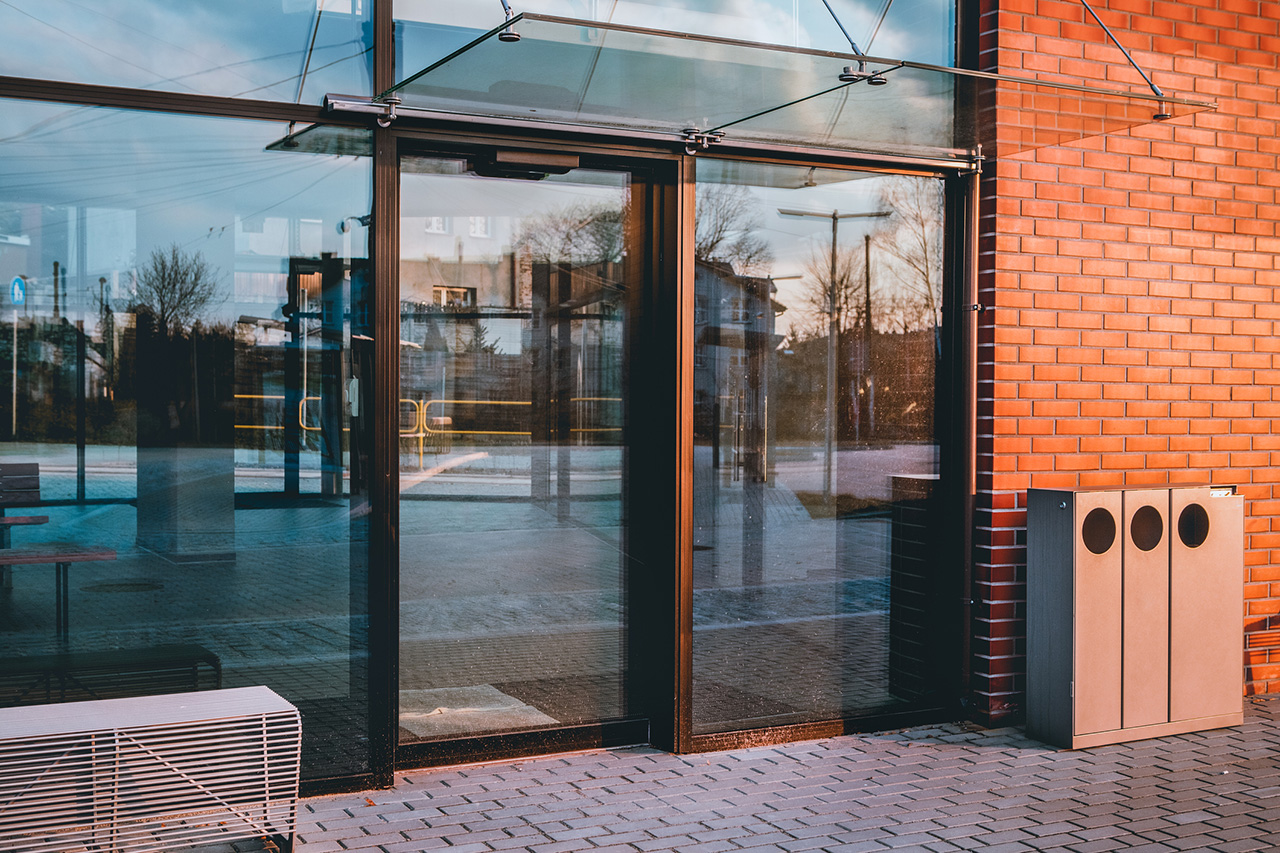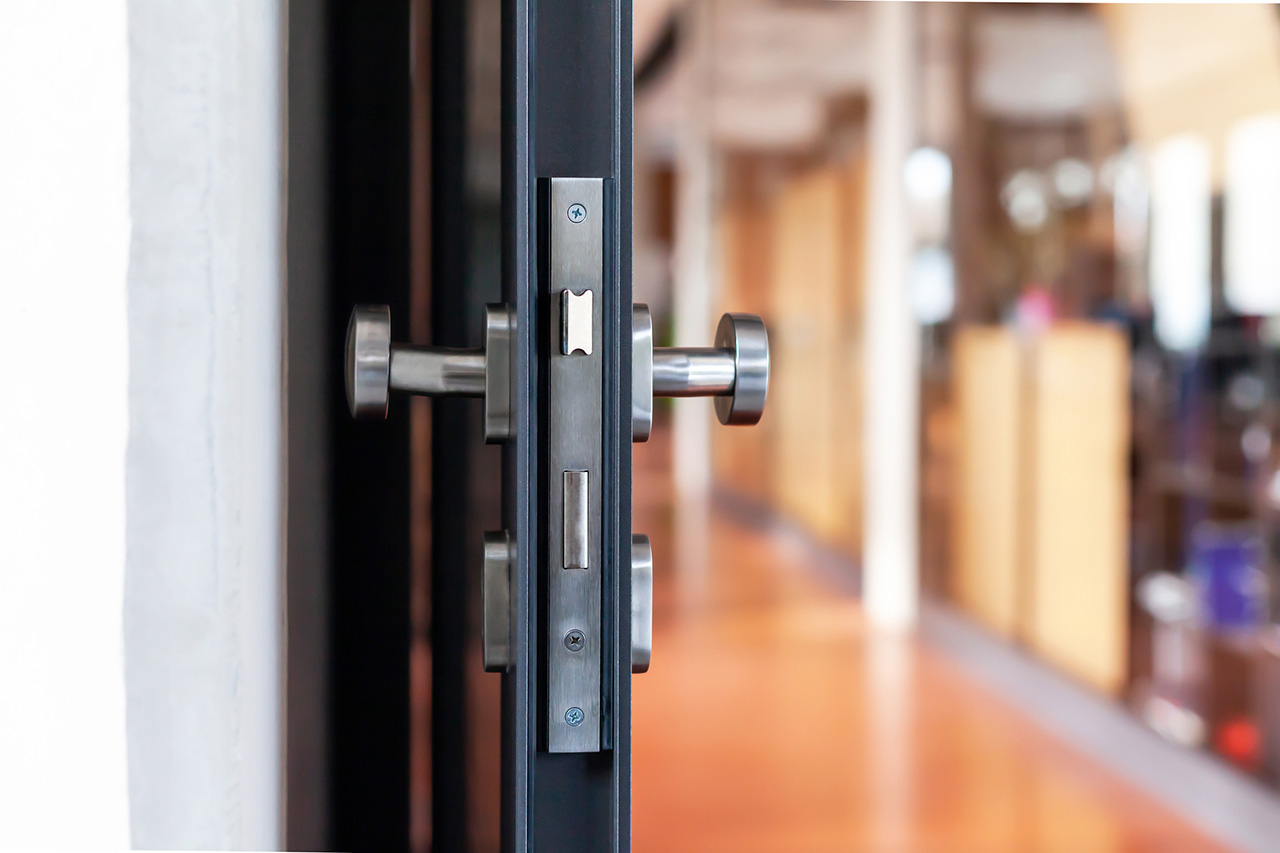The 3 Questions We Get Asked Most About Commercial Doors
Here at Select Door and Frame there are certain questions we get asked again and again. But we’re sure you don’t want to hear the FAQs we put to each other on a daily basis – mostly, ‘What’s for lunch?’ and ‘What’s for dinner?’ – as much as you’d like to hear the FAQs we get from our customers.
So we came up with our Top 3 most-asked. Let’s start with the biggie…
1. How do I choose a commercial door?
When deciding which door to put in your space, you need to consider several things:
- Is it an interior or exterior door?
- How much traffic will go through the door?
- Does the door need to be fire rated? If it does, which rating does it need?
- What is the current or desired style of the space in which the door will be fitted?
Interior vs Exterior
As you answer these questions you begin to get a better picture of the door you need. For example, an exterior door needs to be more resilient and weather-proof than an interior door, so in this case, you’d probably want to consider using a steel door.
High-traffic Area?
If the door is going to be in a high-traffic area, you’ll need to opt for a door with a thicker gauge or a solid core. If you choose a wood door for a high-traffic area, avoid using one with a hollow core, as this won’t withstand the comings and goings of human traffic as well as a solid core or metal door will.
Wood vs Metal Fire Ratings?
Wood and Metal doors have different fire rating options. If the space in which you’re fitting your doors has required standards and/or codes, you should consider the different hour ratings available.
- A wood door is available in 20-; 45-; 60-; and 90-minute ratings
- A steel door is available in 45-, 90- or 180-minute ratings
Adding glass inserts to the door can impact its fire rating so you will need to take this into consideration too.
Interior Style?
Finally, when it comes to choosing your ideal door, you should consider the style of the space. Steel doors, while customizable, have a more industrial feel than a 6-panel wood door. In a commercial or industrial space, you may prefer to use a steel door to ensure strength and durability, while wood doors might better suit the aesthetic of apartment blocks and community centres.

2. What is the strongest door frame?
You have two main options when it comes to door frames:
- Welded
- Knock-down
A welded frame is exactly as it sounds – all the joints are welded together before installation.
A knock-known frame is also known as an after-set drywall frame – a hollow metal frame designed for easy installation.
Your frame options can be limited by the type of wall it’s being installed in. So, as mentioned above, a knock-down frame is the best option for a drywalled wall, while a welded frame is better suited to a masonry wall or one with steel studs.
Overall, a welded frame is the tougher option, but ultimately the frame strength comes from the gauge of the metal.
The lower the gauge of the metal, the thicker and stronger it is. You can choose from:
20 gauge – thin
18 gauge – average
16 gauge – thick
Bear in mind that as the gauge of the metal lowers (and so more material is being used) the price increases.

3. What is the hardware on a door?
The typical hardware on an interior door includes:
- Hinges
- Latch set
- Knob/lever or push/pull handle
- Deadbolt or mortise lock
- Door stop
For an exterior door, you can also consider:
- Weatherstripping
- A threshold
- Door closers (automatic or otherwise)
- A door sweep.
If you are considering double doors, you may also need a mullion, flush bolts, and more of the appropriate lockset.
Depending on the function and expected treatment of the door, you will need different hardware in different grades and duties.
The options for grade are:
Grade 1 – highest quality, typically used in commercial settings and institutional environments
Grade 2 – mid-range products, commonly used in commercial residential spaces like apartment buildings
Grade 3 – lower-tier, which best suits a low traffic space
Once you narrow down your grade, you should then consider the amount of traffic and potential damage you can expect the door to face. There are two levels of hardware in this case:
- Standard Duty – Suitable for a space with low to medium traffic, in a low abuse setting. Typically, standard duty hardware is placed in residential builds as it is tough enough to withstand day-to-day use and is typically the more budget-friendly option.
- Heavy Duty – this type of hardware is commonly used in institutional and high traffic commercial areas like hospitals or community centres.
There are endless options and combinations available when it comes to hardware type, grade, style, and function. A professional can help guide your decisions and ensure you get everything you need and none of the things you don’t. (We can also tell you what we’re having for dinner if you’re interested!)

Like to work with us?
Select Door and Frame is Canada’s leading supplier and distributor of high-performance, cost-effective doors, frames & hardware. From door and frame specification to product supply and installation, we offer a complete range of professional services that have kept our customers coming back for more than 25 years.
If you’re interested in working with us, we’d love to hear from you. Get in touch today to see how to team up to provide the perfect doors, frames and hardware for your project.
